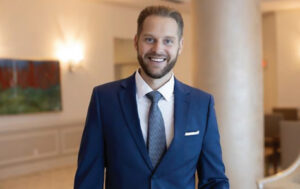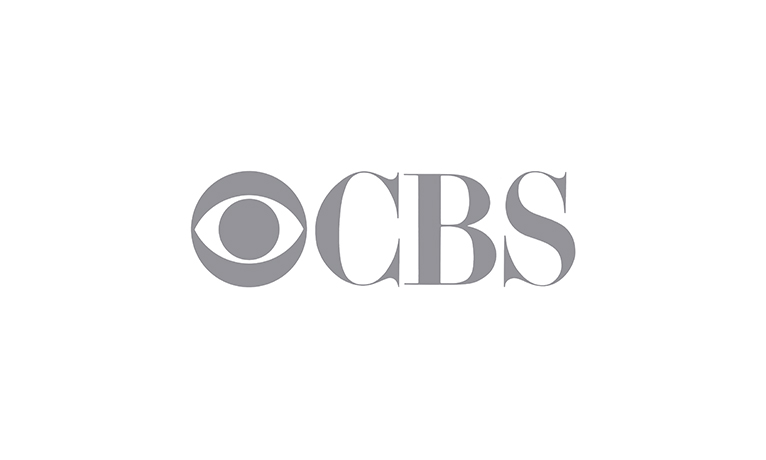Competitive Drive Helped This Fort Lauderdale Attorney Take on Big Pharma
by Dan Roe
Marcus Susen was just 31 years old when Michelle Garcia approached him with a matter that would become his primary focus for the next seven years of his life.
Garcia was seeking representation for herself and thousands of other women who experienced complications with Essure, a permanent birth control device inserted into the fallopian tubes. Susen filed the first lawsuit against Essure and in 2016, was appointed lead counsel for the plaintiff’s steering committee in Eastern Pennsylvania’s federal district court.
Despite being approved by the Food and Drug Administration in 2002, Essure fielded nearly 50,000 medical device reports with the agency and 57 reported deaths before Bayer ceased sales and production at the end of 2018.

Marcus Susen, the attorney responsible for a $1.6 billion recovery in the mass tort against Bayer’s Essure birth control device, said he’s fueled by a love for competition.
The women complained of stabbing abdominal pain, menstrual irregularities, hemorrhaging and perforation, among other symptoms.
In a 2013 interview with ABC 7 New York, Garcia said, “On the left side, I had a piece of an Essure coil stabbing me from the inside, it pierced my fallopian tube; and I was also getting severe pain on the right side from the Essure coil on my right side that was still in my tube.”
“Her and her thousands of Essure friends couldn’t find an attorney to represent them,” said Susen, who was practicing with a law firm known at the time as Koch & Trushin.
Earlier this year, he struck out on his own to form the Susen Law Group, a national injury firm focusing on drug and medical device torts, personal injury and sexual abuse claims, among other practice areas.
Alongside then-colleague Justin Parafinczuk, Susen was lead counsel for thousands of cases.
Last August, the pharmaceutical giant settled about 90% of the lawsuits for $1.6 billion. In a statement released at the time, the company admitted no wrongdoing or liability, saying, “The company stands behind the safety and efficacy of Essure, which are demonstrated by an extensive body of research, undertaken by Bayer and independent medical researchers, involving more than 270,000 women over the past two decades.” After taking the Essure case, Susen became enthralled by what he characterizes as ineffective medical device regulation on the part of the FDA.
“Just because a device or drug is FDA-approved doesn’t necessarily mean it’s safe and effective,” he said. “All you have to do is look at every single device or drug that has been recalled that was first approved by the FDA.” Susen also noted that the #MeToo movement coincided with the Essure litigation and may influence more litigation, and not just in the medical device and drug space.
“After the Essure litigation settled, I wanted to focus more on women’s health and advocacy in the mass tort space. People aren’t as afraid to come forward anymore, as we’ve seen with the Catholic Church, various government officials, and the boy scouts,” he said.
Susen’s current clients include plaintiffs in lawsuits against Johnson & Johnson (for Talcbased powders), Paragard (the intrauterine copper contraceptive), Allergan (the breast implants linked to cancer), and victims of sexual abuse by the Catholic Church and Boy Scouts of America.
The seven-year case also showed Susen the connection between Big Law and the federal government as attorneys representing Bayer filtered in and out of the FDA.
“The revolving door between the FDA and big pharma was a little disconcerting as well,” he said. “I witnessed it firsthand.”
The Am Law 200 firms Dechert; Shook, Hardy & Bacon; and Eckert Seamans Cherin & Mellott represented Bayer in Pennsylvania’s Eastern District federal court.
In April 2018, Shook added 10-year FDA regulator Sonali P. Gunawardhana to the firm’s life science team. She has since moved to become global health care company McKesson’s FDA chief counsel.
“The move provides me with a unique opportunity to partner with premier trial attorneys and strategists to avoid and resolve FDA challenges for the world’s leading health, science and technology companies,” Gunawardhana said in a press release.
Thinking back to the years of working seven-day weeks and studying the ins and outs of preemption — the critical legal concept of the Essure case — Susen said a lifelong passion for competition helped him power through the lengthy mass tort.
“What I like about law is the sense of competitiveness,” Susen said. “Most of the time there’s a winner and a loser. If you’re constantly winning you’re not really learning anything.”
A Massachusetts native, Susen played hockey growing up. Nowadays, he nurtures his competitive spirit with kickboxing, Muay Thai and Brazilian jiu-jitsu. He also scuba dives and meditates for relaxation, and recently adopted a German shepherd puppy. “I have no kids and no wife, so it’ll keep me busy,” he said.
After earning a B.A. from Boston University in 2005, Susen became a commercial fisherman in Cape Cod. But he missed competition.
“I think growing up I loved competition, and I wanted something that satisfied that void that I didn’t have in my life after college,” he said. “I like the whole idea of winning and losing.”
After clerking at the Barnstable County District Attorney’s office, Susen got a job at the Fort Lauderdale litigation boutique Parafinczuk Wolf — Koch & Trushin at the time. He also ran a small sports management company with partner Jason Wolf that has since wound down.
Since starting his own firm, Susen said he’s spent a fair amount on digital advertising, but still gets the majority of his clients through referrals. “I’m not a big advertiser,” he said. “I’m not on I-95 billboards. I really like wordof-mouth referrals a lot better.”
Reflecting on his success in the Essure case, Susen said his propensity to take risks that others aren’t taking gave him the opportunity to lead a mass tort just seven years after graduating from Nova Southeastern University Shepard Broad College of Law in 2009.
“You can’t be afraid to take risks,” he said. “The mass tort space is a hard place to get into with not a lot of money and not a lot of experience.”
Overcoming those obstacles as a young attorney often means taking a leap of faith on a case, Susen said.
“You need to be able to look at cases that people turn down and make something out of them,” he continued. “Because you’re not always going to find the perfect case — you have to take the cases that no one else wants.”
Dan Roe covers the business of law, focusing on Florida-based and national law firms. Contact him at droe@alm.com. On Twitter: @ dan_roe_.
Source:
https://susenlawgroup.com/wp-content/uploads/2021/03/DBR03292021484743Susen.pdf


